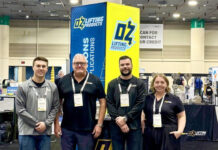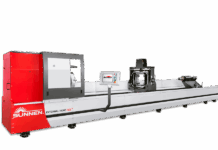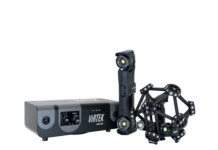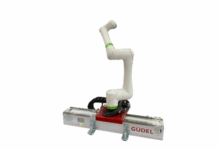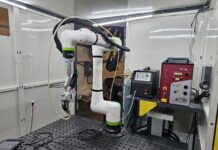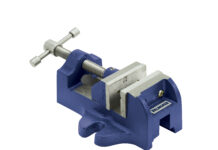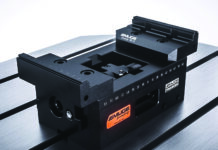Gatan, a leading manufacturer of instrumentation and software used to enhance the performance of electron microscopes, and DECTRIS, the industry leader in hybrid-pixel X-ray and electron detectors for science and industry, today announced the signing of a joint sales and service agreement pertaining to the use of DECTRIS technology in Gatan’s new Stela™ camera.
In the framework of this agreement, Gatan has fully integrated a DECTRIS hybrid-pixel electron detector within the Gatan Microscopy Suite® platform and now offers a complete workflow for advanced four-dimensional scanning transmission electron microscopy (4D STEM) diffraction. Known as the Stela camera, it will enable the mainstream adoption of the 4D STEM diffraction technique in electron microscopy labs around the world.
“Hybrid-pixel electron detectors by DECTRIS bring countless opportunities for materials science TEM and STEM applications, such as 4D STEM, from increased instrument throughput to reduced total cumulative electron dose,” stated Dr. Christian Broennimann, Chief Executive Officer of DECTRIS. “The synergy between Gatan and DECTRIS will bring our technology to the thriving electron microscopy market.”
“I am very pleased by this agreement with DECTRIS, as their hybrid-pixel electron detectors truly complements our current portfolio and unified workflows within Gatan Microscopy Suite,” commented Narayan Vishwanathan, Vice President and Business Unit Manager of Gatan. “With this new camera, we are now able to offer our researchers complete, efficient workflows to perform advanced, high-speed, and high-quality 4D STEM diffraction studies.”
During the design and discovery of materials, researchers frequently use STEM to focus an electron probe (from a few nanometers to subatomic dimensions) onto the specimen to collect various signals as the electrons interact with and scatter from the sample. 4D STEM diffraction is an advanced technique in which the probe is rastered on the specimen in a two-dimensional (2D) array. At each probe position, a 2D diffraction pattern is imaged on a pixelated detector, thus generating a 4D data cube that can be further analyzed.
A successful 4D STEM experiment primarily relies on robust and easy-to-use software for data acquisition and analysis, as well as high data quality and acquisition speed that is mainly dictated by the detector used to collect the diffraction patterns. This collaboration between Gatan and DECTRIS will bring all these aspects together in a single package that enables researchers at all levels to access this critical experimental method.
About AMETEK GATAN
Gatan is the world’s leading manufacturer of instrumentation and software used to enhance and extend the operation and performance of electron microscopes. Gatan’s products, which are fully compatible with all brands of electron microscopes, cover the entire range of the analytical process from specimen preparation and manipulation to imaging and analysis. Its customer base spans the complete spectrum of end-users of analytical instrumentation typically found in industrial, governmental, and academic laboratories. The applications addressed by these scientists and researchers include new materials research, semiconductors, electronics, geosciences, biological science, and biotechnology. The Gatan brand name is recognized and respected throughout the worldwide scientific community and has been synonymous with high-quality products and the industry’s leading technology. Gatan is a business unit within the Materials Analysis Division of AMETEK, Inc., a leading global manufacturer of electronic instruments and electromechanical devices with annual sales of approximately $5.0 billion.
About DECTRIS
DECTRIS develops and manufactures hybrid-pixel detectors to spark scientific breakthroughs around the world. DECTRIS detectors count individual electrons and X-ray photons with the highest possible signal to noise ratio. Our customers benefit from ultimate speed, accuracy and dynamic range when working with the most demanding applications. In addition to pushing the limits of transmission electron microscopy for materials sciences, DECTRIS detectors are well suited for protein and small-molecule electron crystallography. We support researchers everywhere from our offices in Switzerland and the United States.








